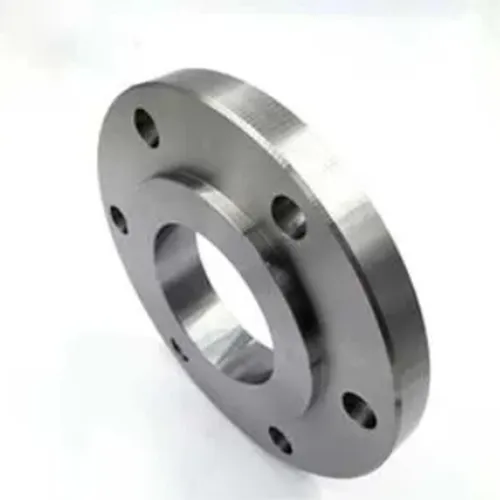-
Cangzhou Yulong Steel Co., Ltd.
-
Phone:
+86 13303177267 -
Email:
admin@ylsteelfittings.com
- English
- Arabic
- Italian
- Spanish
- Portuguese
- German
- kazakh
- Persian
- Greek
- French
- Russian
- Polish
- Thai
- Indonesian
- Vietnamese
- Zulu
- Korean
- Uzbek
- Hindi
- Serbian
- Malay
- Ukrainian
- Gujarati
- Haitian Creole
- hausa
- hawaiian
- Hebrew
- Miao
- Hungarian
- Icelandic
- igbo
- irish
- Japanese
- Javanese
- Kannada
- Khmer
- Rwandese
- Afrikaans
- Albanian
- Amharic
- Armenian
- Azerbaijani
- Basque
- Belarusian
- Bengali
- Bosnian
- Bulgarian
- Catalan
- Cebuano
- China
- China (Taiwan)
- Corsican
- Croatian
- Czech
- Danish
- Esperanto
- Estonian
- Finnish
- Frisian
- Galician
- Georgian
- Kurdish
- Kyrgyz
- Lao
- Latin
- Latvian
- Lithuanian
- Luxembourgish
- Macedonian
- Malgashi
- Malayalam
- Maltese
- Maori
- Marathi
- Mongolian
- Myanmar
- Nepali
- Norwegian
- Norwegian
- Occitan
- Pashto
- Dutch
- Punjabi
- Romanian
- Samoan
- Scottish Gaelic
- Sesotho
- Shona
- Sindhi
- Sinhala
- Slovak
- Slovenian
- Somali
- Sundanese
- Swahili
- Swedish
- Tagalog
- Tajik
- Tamil
- Tatar
- Telugu
- Turkish
- Turkmen
- Urdu
- Uighur
- Welsh
- Bantu
- Yiddish
- Yoruba

Oct . 08, 2024 21:54 Back to list
API Specification for Line Pipe Standards and Guidelines Overview
Understanding API 5L Specification for Line Pipe
The API 5L specification is a critical standard in the oil and gas industry, primarily concerning the manufacturing and quality requirements for line pipes used in the transportation of hydrocarbons. Established by the American Petroleum Institute (API), this specification outlines the technical details necessary for producers and end-users to ensure the integrity and safety of pipeline systems.
Overview of API 5L
API 5L was first introduced in the 1920s and has undergone numerous revisions to adapt to evolving industry needs. This specification defines the requirements for the manufacture of two main qualifications of line pipe “L” grade and “X” grade. The L grades are defined as Low Strength pipes, while X grades (X42, X52, X60, X70, and up) indicate higher-strength pipes. The strength level of the pipe determines its suitability for different applications, including varying pressure and environmental conditions.
Key Components of API 5L
1. Material Specifications API 5L covers various types of steel used for line pipes, including seamless and welded products. The specification sets forth the chemical composition and mechanical properties that the materials must meet, ensuring durability and resistance to corrosion.
2. Manufacturing Processes The standard provides guidelines for the manufacturing process, whether the pipe is produced via seamless or welded methods. Manufacturers must adhere to specific practices that affect the final product's integrity and performance.
3. Testing and Inspection To guarantee the reliability of the pipes, API 5L mandates a series of tests, including non-destructive testing methods. These tests assess the weld quality, strength, and overall durability of the pipes, ensuring they can withstand the harsh conditions associated with the transportation of oil and gas.
api spec 5l specification for line pipe

4. Coating and Protection To further enhance the longevity of the pipes, the specification addresses protective coatings and measures against external corrosion. This is especially important for pipes that are buried underground or submerged underwater, where they are exposed to various environmental elements.
5. Certification Compliance with API 5L is essential for manufacturers, as it provides a level of assurance to operators about the pipe's quality. Certificates of compliance are issued to validate that the pipes meet the standard’s requirements.
Importance in the Industry
The API 5L specification plays a vital role in the oil and gas sector by ensuring safe and efficient transportation of hydrocarbons across vast distances. Without such standards, the risks associated with pipeline failures could lead to environmental disasters, economic losses, and safety hazards.
Moreover, with the growing emphasis on sustainability, API 5L has adapted to meet modern challenges such as reducing emissions and enhancing the overall lifecycle of pipeline systems. This reflects the industry's commitment to environmental stewardship while maintaining the efficacy of oil and gas transportation.
Conclusion
In summary, the API 5L specification is an essential framework that governs the quality and safety of line pipes in the oil and gas industry. By establishing rigorous standards for production, testing, and compliance, API 5L ensures that pipelines can operate safely under various conditions, fostering a reliable energy supply for global markets. As the industry continues to evolve, adherence to these specifications will remain critical in combating the challenges posed by both operational demands and environmental concerns.
Latest news
-
ANSI 150P SS304 SO FLANGE
NewsFeb.14,2025
-
ASTM A333GR6 STEEL PIPE
NewsJan.20,2025
-
ANSI B16.5 WELDING NECK FLANGE
NewsJan.15,2026
-
ANSI B16.5 SLIP-ON FLANGE
NewsApr.19,2024
-
SABS 1123 FLANGE
NewsJan.15,2025
-
DIN86044 PLATE FLANGE
NewsApr.19,2024
-
DIN2527 BLIND FLANGE
NewsApr.12,2024
-
JIS B2311 Butt-Welding Fittings LR/SR 45°/90° /180°Seamless/Weld
NewsApr.23,2024











